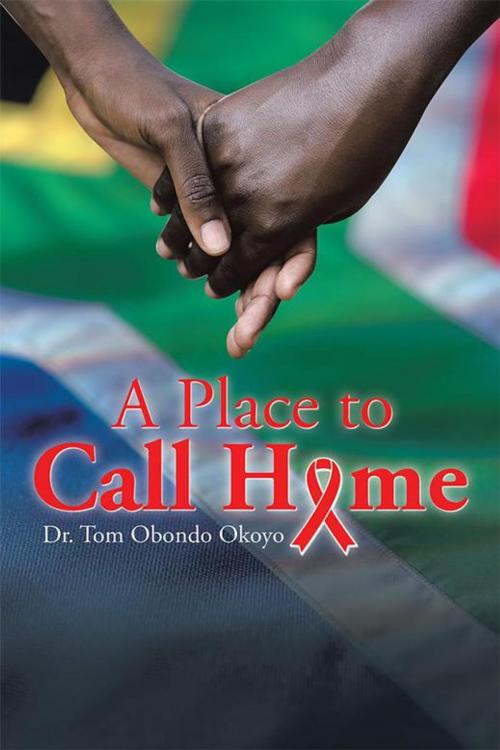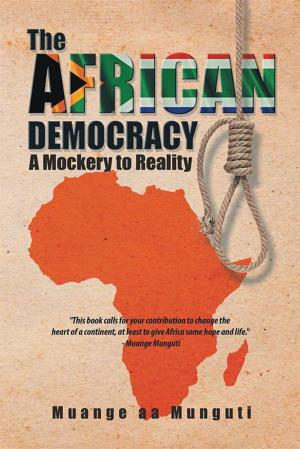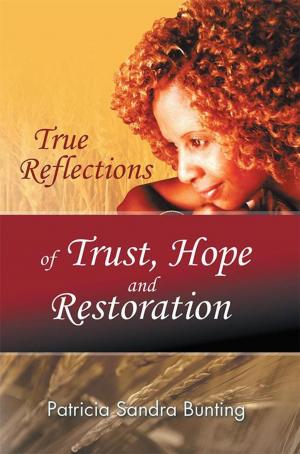| Author: | Dr. Tom Obondo Okoyo | ISBN: | 9781482809251 |
| Publisher: | Partridge Publishing Africa | Publication: | November 20, 2015 |
| Imprint: | Partridge Publishing Africa | Language: | English |
| Author: | Dr. Tom Obondo Okoyo |
| ISBN: | 9781482809251 |
| Publisher: | Partridge Publishing Africa |
| Publication: | November 20, 2015 |
| Imprint: | Partridge Publishing Africa |
| Language: | English |
A Place to Call Home is a story of refugees no community wanted to see anywhere close to them, as if they were good for nothing. It is an epic portrayal of a painful dilemma of thousands of homeless internally displaced persons (IDPs) who were victims of the highly contested and disputed presidential election. The novel is a true, tear-jerking reflection of a botched election in December 2007 and January 2008, which culminated into a postelection violence that brutally killed almost there thousand innocent people. Some were burned alive inside a churchGods territory as they calledwhere they had taken safe haven. About seven hundred thousand people were forcibly removed from their homes; some took refuge at police stations, while others fled to neighboring countries to remain alive. Business premises, vehicles, and other properties worth billions of shillings were destroyed, and domestic animals were stolen. This spate of violence happened at a time when thousands of ethnic militias heavily armed with homemade crude weapons were chanting war slogans and singing traditional war songs everywhere in the country. Loyal to their respective presidential candidates, the militias roamed the streets of towns and villages, making every journey perilous. Enemies who got caught were beheaded, and their heads were paraded or displayed on the main highways. Women were seized and gang-raped by the militias and got infected with the deadly HIV-AIDS virus. Amazingly, communities turned their backs against the combined IDPs who were looking for a permanent settlement, calling them foreigners, invaders, or land grabbers in their own country. Breathing under such horrifying circumstances, all IDPs drawn from various tribes resolved to live together in peace and harmony and to prove to the world that they could live with people from other communities without any problem, in spite of their language and cultural barriers. The idea of living together was instilled in the IDPs by VP Nyandege, who emerged as the leading light in their plight and the quest for what they could call home. VP Nyandege won a special place in fellow IDPs hearts and made them believe that life was worth fighting for. For seven years, these IDPs have been living in squalid conditions or in makeshift camps, waiting to be settled as promised by the ruling elite. The IDPs lived in rough and ready dwellings with no food, water, toilet facilities, social amenities, or sanitation at all. They were living in a world of their own; no laws, rules, or culture to observe. The fate of these IDPs is reminiscent of the Jews when they lived in Europe and were rejected by people in all countries after World War II and consequently had no place to call their home. After seven years in isolated makeshift camps, the IDPs were offered land to settle on by the Biblical Good Samaritan to prove that tribal groups, once sworn enemies, could live together peacefully and harmoniously. And now these IDPs would like to build the countrys first utopia, the same way the Israelis have transformed the desert land of Israel into another biblical Promised Land of Canaan, the land of milk and honey. (This unfortunate event was disseminated throughout the world by the mass media.)
A Place to Call Home is a story of refugees no community wanted to see anywhere close to them, as if they were good for nothing. It is an epic portrayal of a painful dilemma of thousands of homeless internally displaced persons (IDPs) who were victims of the highly contested and disputed presidential election. The novel is a true, tear-jerking reflection of a botched election in December 2007 and January 2008, which culminated into a postelection violence that brutally killed almost there thousand innocent people. Some were burned alive inside a churchGods territory as they calledwhere they had taken safe haven. About seven hundred thousand people were forcibly removed from their homes; some took refuge at police stations, while others fled to neighboring countries to remain alive. Business premises, vehicles, and other properties worth billions of shillings were destroyed, and domestic animals were stolen. This spate of violence happened at a time when thousands of ethnic militias heavily armed with homemade crude weapons were chanting war slogans and singing traditional war songs everywhere in the country. Loyal to their respective presidential candidates, the militias roamed the streets of towns and villages, making every journey perilous. Enemies who got caught were beheaded, and their heads were paraded or displayed on the main highways. Women were seized and gang-raped by the militias and got infected with the deadly HIV-AIDS virus. Amazingly, communities turned their backs against the combined IDPs who were looking for a permanent settlement, calling them foreigners, invaders, or land grabbers in their own country. Breathing under such horrifying circumstances, all IDPs drawn from various tribes resolved to live together in peace and harmony and to prove to the world that they could live with people from other communities without any problem, in spite of their language and cultural barriers. The idea of living together was instilled in the IDPs by VP Nyandege, who emerged as the leading light in their plight and the quest for what they could call home. VP Nyandege won a special place in fellow IDPs hearts and made them believe that life was worth fighting for. For seven years, these IDPs have been living in squalid conditions or in makeshift camps, waiting to be settled as promised by the ruling elite. The IDPs lived in rough and ready dwellings with no food, water, toilet facilities, social amenities, or sanitation at all. They were living in a world of their own; no laws, rules, or culture to observe. The fate of these IDPs is reminiscent of the Jews when they lived in Europe and were rejected by people in all countries after World War II and consequently had no place to call their home. After seven years in isolated makeshift camps, the IDPs were offered land to settle on by the Biblical Good Samaritan to prove that tribal groups, once sworn enemies, could live together peacefully and harmoniously. And now these IDPs would like to build the countrys first utopia, the same way the Israelis have transformed the desert land of Israel into another biblical Promised Land of Canaan, the land of milk and honey. (This unfortunate event was disseminated throughout the world by the mass media.)















